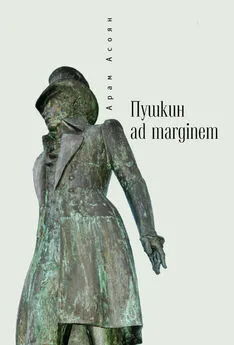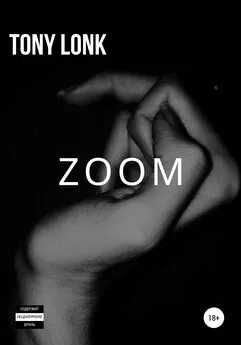Toni Morrison - Sula
- Название:Sula
- Автор:
- Жанр:
- Издательство:неизвестно
- Год:неизвестен
- ISBN:нет данных
- Рейтинг:
- Избранное:Добавить в избранное
-
Отзывы:
-
Ваша оценка:
Toni Morrison - Sula краткое содержание
Sula - читать онлайн бесплатно полную версию (весь текст целиком)
Интервал:
Закладка:
“Why, even in hate here I am thinking of what Sula said.”
Hunched down in the small bright room Nel waited. Waited for the oldest cry. A scream not for others, not in sympathy for a burnt child, or a dead father, but a deeply personal cry for one’s own pain. A loud, strident: “Why me?” She waited. The mud shifted, the leaves stirred, the smell of overripe green things enveloped her and announced the beginnings of her very own howl.
But it did not come.
The odor evaporated; the leaves were still, the mud settled. And finally there was nothing, just a flake of something dry and nasty in her throat. She stood up frightened. There was something just to the right of her, in the air, just out of view. She could not see it, but she knew exactly what it looked like. A gray ball hovering just there. Just there. To the right. Quiet, gray, dirty. A ball of muddy strings, but without weight, fluffy but terrible in its malevolence. She knew she could not look, so she closed her eyes and crept past it out of the bathroom, shutting the door behind her. Sweating with fear, she stepped to the kitchen door and onto the back porch. The lilac bushes preened at the railing, but there were no lilacs yet. Wasn’t it time? Surely it was time. She looked over the fence to Mrs. Rayford’s yard. Hers were not in bloom either. Was it too late? She fastened on this question with enthusiasm, all the time aware of something she was not thinking. It was the only way she could get her mind off the flake in her throat.
She spent a whole summer with the gray ball, the little ball of fur and string and hair always floating in the light near her but which she did not see because she never looked. But that was the terrible part, the effort it took not to look. But it was there anyhow, just to the right of her head and maybe further down by her shoulder, so when the children went to a monster movie at the Elmira Theater and came home and said, “Mamma, can you sleep with us tonight?” she said all right and got into bed with the two boys, who loved it, but the girl did not. For a long time she could not stop getting in the bed with her children and told herself each time that they might dream a dream about dragons and would need her to comfort them. It was so nice to think about their scary dreams and not about a ball of fur. She even hoped their dreams would rub off on her and give her the wonderful relief of a nightmare so she could stop going around scared to turn her head this way or that lest she see it. That was the scary part—seeing it. It was not coming at her; it never did that, or tried to pounce on her. It just floated there for the seeing, if she wanted to, and O my God for the touching if she wanted to. But she didn’t want to see it, ever, for if she saw it, who could tell but what she might actually touch it, or want to, and then what would happen if she actually reached out her hand and touched it? Die probably, but no worse than that. Dying was OK because it was sleep and there wasn’t no gray ball in death, was there? Was there? She would have to ask somebody about that, somebody she could confide in and who knew a lot of things, like Sula, for Sula would know or if she didn’t she would say something funny that would make it all right. Ooo no, not Sula. Here she was in the midst of it, hating it, scared of it, and again she thought of Sula as though they were still friends and talked things over. That was too much. To lose Jude and not have Sula to talk to about it because it was Sula that he had left her for.
Now her thighs were really empty. And it was then that what those women said about never looking at another man made some sense to her, for the real point, the heart of what they said, was the word looked. Not to promise never to make love to another man, not to refuse to marry another man, but to promise and know that she could never afford to look again, to see and accept the way in which their heads cut the air or see moons and tree limbs framed by their necks and shoulders…never to look, for now she could not risk looking—and anyway, so what? For now her thighs were truly empty and dead too, and it was Sula who had taken the life from them and Jude who smashed her heart and the both of them who left her with no thighs and no heart just her brain raveling away.
And what am I supposed to do with these old thighs now, just walk up and down these rooms? What good are they, Jesus? They will never give me the peace I need to get from sunup to sundown, what good are they, are you trying to tell me that I am going to have to go all the way through these days all the way, O my god, to that box with four handles with never nobody settling down between my legs even if I sew up those old pillow cases and rinse down the porch and feed my children and beat the rugs and haul the coal up out of the bin even then nobody, O Jesus, I could be a mule or plow the furrows with my hands if need be or hold these rickety walls up with my back if need be if I knew that somewhere in this world in the pocket of some night I could open my legs to some cowboy lean hips but you are trying to tell me no and O my sweet Jesus what kind of cross is that?

1939

When the word got out about Eva being put in Sunnydale, the people in the Bottom shook their heads and said Sula was a roach. Later, when they saw how she took Jude, then ditched him for others, and heard how he bought a bus ticket to Detroit (where he bought but never mailed birthday cards to his sons), they forgot all about Hannah’s easy ways (or their own) and said she was a bitch. Everybody remembered the plague of robins that announced her return, and the tale about her watching Hannah burn was stirred up again.
But it was the men who gave her the final label, who fingerprinted her for all time. They were the ones who said she was guilty of the unforgivable thing—the thing for which there was no understanding, no excuse, no compassion. The route from which there was no way back, the dirt that could not ever be washed away. They said that Sula slept with white men. It may not have been true, but it certainly could have been. She was obviously capable of it. In any case, all minds were closed to her when that word was passed around. It made the old women draw their lips together; made small children look away from her in shame; made young men fantasize elaborate torture for her—just to get the saliva back in their mouths when they saw her.
Every one of them imagined the scene, each according to his own predilections—Sula underneath some white man—and it filled them with choking disgust. There was nothing lower she could do, nothing filthier. The fact that their own skin color was proof that it had happened in their own families was no deterrent to their bile. Nor was the willingness of black men to lie in the beds of white women a consideration that might lead them toward tolerance. They insisted that all unions between white men and black women be rape; for a black woman to be willing was literally unthinkable. In that way, they regarded integration with precisely the same venom that white people did.
So they laid broomsticks across their doors at night and sprinkled salt on porch steps. But aside from one or two unsuccessful efforts to collect the dust from her footsteps, they did nothing to harm her. As always the black people looked at evil stony-eyed and let it run.
Sula acknowledged none of their attempts at counter-conjure or their gossip and seemed to need the services of nobody. So they watched her far more closely than they watched any other roach or bitch in the town, and their alertness was gratified. Things began to happen.
First off, Teapot knocked on her door to see if she had any bottles. He was the five-year-old son of an indifferent mother, all of whose interests sat around the door of the Time and a Half Pool Hall. Her name was Betty but she was called Teapot’s Mamma because being his mamma was precisely her major failure. When Sula said no, the boy turned around and fell down the steps. He couldn’t get up right away and Sula went to help him. His mother, just then tripping home, saw Sula bending over her son’s pained face. She flew into a fit of concerned, if drunken, motherhood, and dragged Teapot home. She told everybody that Sula had pushed him, and talked so strongly about it she was forced to abide by the advice of her friends and take him to the county hospital. The two dollars she hated to release turned out to be well spent, for Teapot did have a fracture, although the doctor said poor diet had contributed substantially to the daintiness of his bones. Teapot’s Mamma got a lot of attention anyway and immersed herself in a role she had shown no inclination for: motherhood. The very idea of a grown woman hurting her boy kept her teeth on edge. She became the most devoted mother: sober, clean and industrious. No more nickels for Teapot to go to Dick’s for a breakfast of Mr. Goodbars and soda pop: no more long hours of him alone or wandering the roads while she was otherwise engaged. Her change was a distinct improvement, although little Teapot did miss those quiet times at Dick’s.
Other things happened. Mr. Finley sat on his porch sucking chicken bones, as he had done for thirteen years, looked up, saw Sula, choked on a bone and died on the spot. That incident, and Teapot’s Mamma, cleared up for everybody the meaning of the birthmark over her eye; it was not a stemmed rose, or a snake, it was Hannah’s ashes marking her from the very beginning.
She came to their church suppers without underwear, bought their steaming platters of food and merely picked at it—relishing nothing, exclaiming over no one’s ribs or cobbler. They believed that she was laughing at their God.
And the fury she created in the women of the town was incredible—for she would lay their husbands once and then no more. Hannah had been a nuisance, but she was complimenting the women, in a way, by wanting their husbands. Sula was trying them out and discarding them without any excuse the men could swallow. So the women, to justify their own judgment, cherished their men more, soothed the pride and vanity Sula had bruised.
Among the weighty evidence piling up was the fact that Sula did not look her age. She was near thirty and, unlike them, had lost no teeth, suffered no bruises, developed no ring of fat at the waist or pocket at the back of her neck. It was rumored that she had had no childhood diseases, was never known to have chicken pox, croup or even a runny nose. She had played rough as a child—where were the scars? Except for a funny-shaped finger and that evil birthmark, she was free of any normal signs of vulnerability. Some of the men, who as boys had dated her, remembered that on picnics neither gnats nor mosquitoes would settle on her. Patsy, Hannah’s one-time friend, agreed and said not only that, but she had witnessed the fact that when Sula drank beer she never belched.
The most damning evidence, however, came from Dessie, who was a big Daughter Elk and knew things. At one of the social meetings she revealed something to her friends.
“Yeh, well I noticed something long time ago. Ain’t said nothing ’bout it ’cause I wasn’t sure what it meant. Well…I did mention it to Ivy but not nobody else. I disremember how long ago. ’Bout a month or two I guess ’cause I hadn’t put down my new linoleum yet. Did you see it, Cora? It’s that kind we saw in the catalogue.”
“Naw.”
“Get on with it, Dessie.”
“Well, Cora was with me when we looked in the catalogue…”
Читать дальшеИнтервал:
Закладка:








